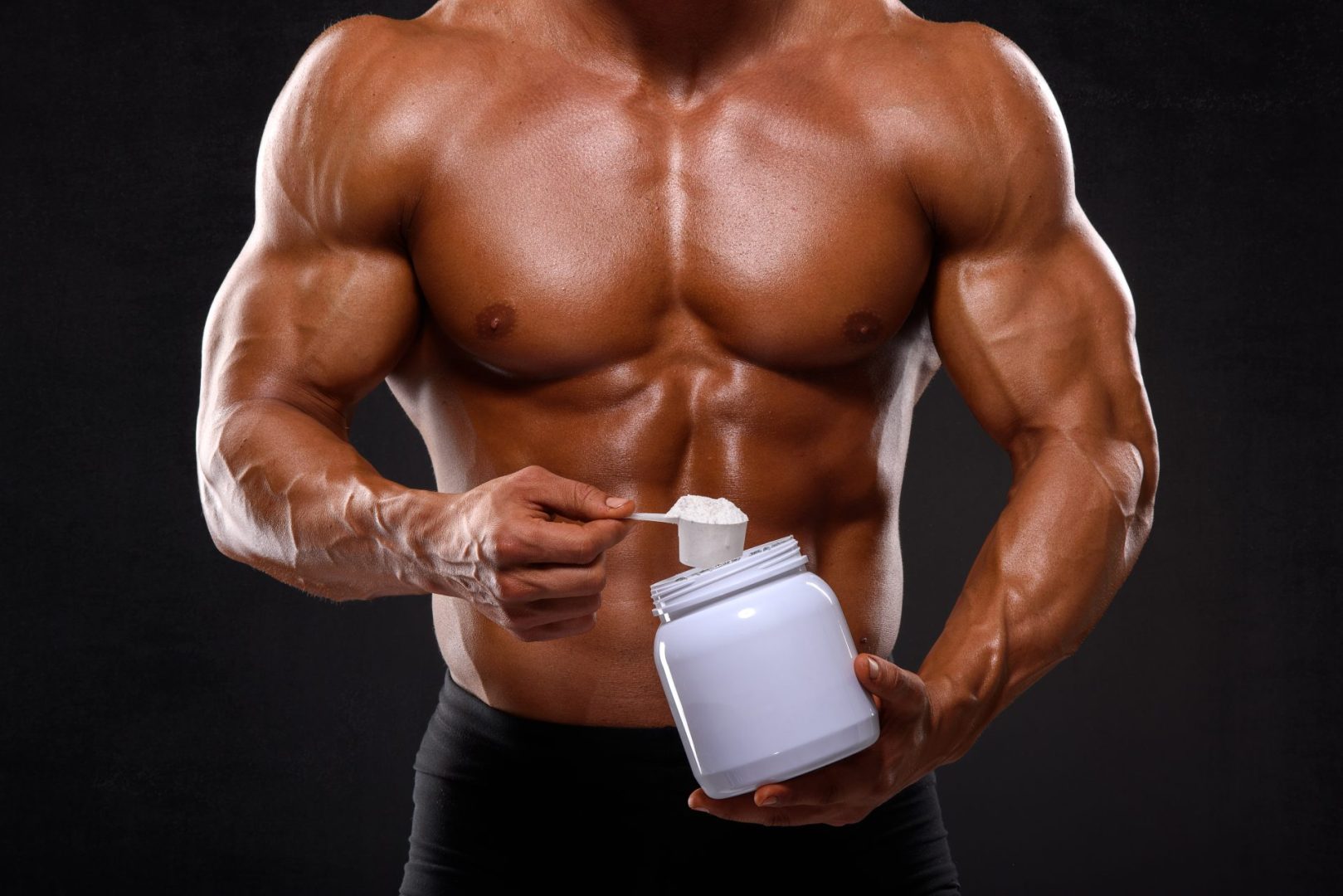This powerhouse compound does more than just build muscle—here’s why so many fitness enthusiasts swear by it
When it comes to fitness supplements, few have garnered as much scientific support and real-world success as creatine. This naturally occurring compound has transformed countless workout routines, helping everyone from professional athletes to weekend warriors achieve their fitness goals faster and more effectively.
Despite its popularity in fitness circles, many people remain confused about what creatine actually is, how it works, and whether it’s safe to use. Recent research has revealed surprising benefits beyond just bigger muscles, making this supplement worth a closer look even for those who aren’t trying to build a bodybuilder physique.
What exactly is creatine and how does it work
Your body naturally produces creatine from three amino acids—glycine, arginine, and methionine—primarily in your liver, kidneys, and pancreas. Once created, about 95% of your body’s creatine is stored in your muscles, with small amounts found in your brain and other tissues.
The magic of creatine happens during high-intensity, short-duration activities like sprinting, jumping, or lifting weights. These explosive movements rely on a rapid energy system that uses a molecule called adenosine triphosphate (ATP). When your muscles contract, ATP breaks down to release energy, becoming adenosine diphosphate (ADP).
Here’s where creatine enters the picture: it helps rapidly recycle ADP back into energy-rich ATP, allowing you to maintain intense effort for longer before fatigue sets in. This recycling happens within seconds, making creatine particularly valuable for activities requiring brief bursts of maximum effort rather than prolonged endurance.
Think of creatine as your muscles’ quick-recharge battery pack. When your natural creatine stores are saturated through supplementation, your muscles can generate more power, recover faster between efforts, and perform at their peak for slightly longer periods.
The 5 science-backed benefits that matter most
While creatine first gained popularity for its muscle-building properties, research has uncovered a impressive range of benefits that extend far beyond just getting bigger biceps:
- Enhanced strength and power output – Studies consistently show that creatine supplementation can increase maximum strength by 5-15% and improve performance in high-intensity exercises by up to 15%. This means more weight on the bar, more explosive movements, and better overall athletic performance in sports requiring quick bursts of power.
- Accelerated muscle growth – Creatine supports muscle growth through multiple mechanisms. It draws water into muscle cells (cellular hydration), creating a more anabolic environment. It also enhances protein synthesis, reduces protein breakdown, and increases the expression of genes responsible for muscle growth. Research shows creatine supplementation combined with resistance training typically results in 1-2 pounds more muscle gain than training alone over just a few weeks.
- Faster recovery between workouts – By replenishing ATP stores more quickly and reducing exercise-induced inflammation, creatine helps muscles recover faster after intense training. This means less soreness and the ability to train harder and more frequently, creating a compounding effect on fitness gains over time.
- Improved brain function and neuroprotection – One of creatine’s most surprising benefits extends to brain health. Your brain requires substantial energy to function optimally, and creatine helps maintain brain ATP levels. Studies suggest creatine supplementation may improve memory, intelligence test performance, and reduce mental fatigue during challenging tasks. Research also indicates potential neuroprotective effects that might help prevent or manage neurological conditions.
- Enhanced aging and overall health – As we age, natural creatine production declines along with muscle mass. Supplementation appears particularly beneficial for older adults, helping preserve strength, improve bone density, and maintain functional independence. Some research suggests creatine may also help manage blood sugar levels and support overall metabolic health.
These benefits make creatine valuable not just for competitive athletes but for anyone looking to improve their physical performance, body composition, or even cognitive function.
Natural food sources versus supplements
While your body produces about 1 gram of creatine daily, you can also obtain it through diet. However, significant amounts are found only in animal products, particularly:
Red meat provides the richest natural source, with approximately 2 grams of creatine per pound of uncooked beef or pork.
Seafood offers excellent amounts, particularly herring (3-4.5 grams per pound), salmon (2 grams per pound), and tuna (1.8 grams per pound).
Poultry contains more modest amounts, with chicken and turkey providing about 1.5 grams per pound.
The challenge with obtaining optimal creatine levels through diet alone becomes clear when considering these numbers. To reach the 3-5 grams daily supplement dose, you would need to consume at least 1-2 pounds of meat daily—a amount that may not align with many dietary preferences or recommendations.
This reality explains why even people who regularly consume animal products often turn to supplements. For vegetarians and vegans, supplementation represents the only practical way to increase creatine levels since plant foods contain virtually no creatine.
How to use creatine safely and effectively
Creatine monohydrate stands as the most extensively studied and cost-effective form of creatine supplement. Despite numerous alternative forms on the market claiming superior absorption or results, research consistently shows that simple creatine monohydrate delivers excellent results with the strongest safety profile.
Two common approaches exist for beginning supplementation:
The loading method involves taking 20 grams daily (divided into 4-5 doses) for 5-7 days to rapidly saturate muscle stores, followed by a maintenance dose of 3-5 grams daily thereafter.
The gradual approach simply uses 3-5 grams daily from the start, which takes longer (about 28 days) to fully saturate muscles but may cause fewer digestive issues.
For most people, the simple approach of taking 3-5 grams daily with water provides excellent results with minimal hassle. Timing appears less important than consistency—although taking creatine with a meal containing carbohydrates may enhance uptake slightly.
Addressing common concerns and misconceptions
Despite decades of research supporting creatine’s safety, misconceptions persist. Here’s the truth behind common concerns:
Creatine does not damage kidneys in healthy individuals. Numerous studies, including those following people taking creatine for years, show no adverse effects on kidney function in those with healthy kidneys.
The water weight gain from creatine (typically 2-4 pounds initially) represents increased cellular hydration, not bloating or subcutaneous water retention. This cellular hydration contributes positively to the anabolic environment supporting muscle growth.
Hair loss concerns stem from a single preliminary study suggesting creatine might increase DHT (a hormone linked to male pattern baldness). However, no direct connection between creatine and hair loss has been established in subsequent research.
Stomach discomfort can occur with loading doses but rarely with standard 3-5 gram servings. Taking creatine with food can further reduce the likelihood of digestive issues.
While generally recognized as safe, certain populations should exercise caution with creatine supplementation:
Those with existing kidney disorders should consult healthcare providers before using creatine.
People with PKU (phenylketonuria) should be aware that some creatine supplements contain phenylalanine.
Pregnant or breastfeeding women have limited research regarding safety, so conservative medical guidance typically recommends avoiding supplementation during these periods.
Finding the right creatine for your needs
When shopping for creatine supplements, quality matters. Look for products that:
List “creatine monohydrate” as the only active ingredient (avoid expensive blends with unnecessary additives).
Carry third-party testing certifications from organizations like NSF Certified for Sport, Informed Choice, or USP.
Offer micronized creatine if you experience digestive discomfort, as the smaller particle size may improve dissolution and absorption.
Provide reasonable serving sizes (3-5 grams) with straightforward dosing instructions.
Creatine powder generally offers the best value compared to capsules or ready-to-drink products. The unflavored version can be mixed into virtually any beverage without affecting taste.
Maximizing your results beyond supplementation
While creatine offers impressive benefits, it works best as part of a comprehensive approach to fitness and nutrition:
Resistance training creates the stimulus that creatine helps amplify. Without appropriate exercise, the supplement’s benefits will be minimal.
Protein intake of at least 0.7-1 gram per pound of body weight daily ensures your body has the building blocks needed for muscle recovery and growth.
Adequate hydration becomes even more important when taking creatine, as its water-drawing mechanism works best in well-hydrated muscles.
Consistent sleep prioritization helps maximize recovery and growth hormone production, working synergistically with creatine’s benefits.
By combining creatine supplementation with these foundational health practices, you can maximize your results and experience the full range of benefits this remarkable compound offers.
With its exceptional safety profile, affordable price point, and wide-ranging benefits, creatine stands as one of the few supplements truly deserving of its reputation. Whether your goals involve athletic performance, physique enhancement, or even cognitive protection, this natural compound delivers results backed by both science and decades of real-world success.

















